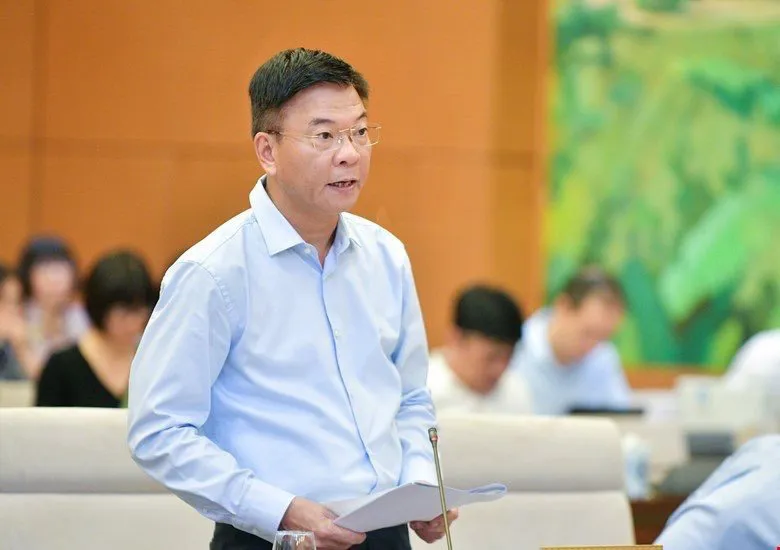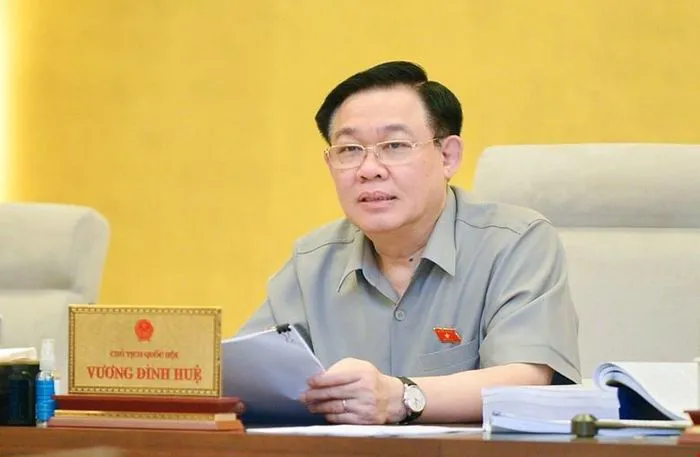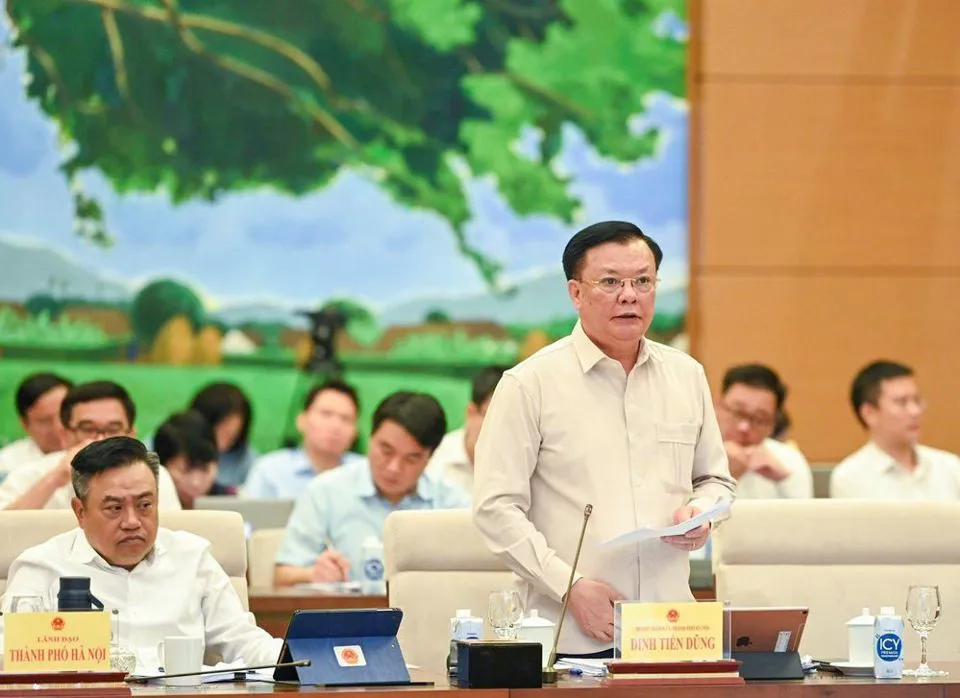Decentralizaion on agenda for Hanoi decision makers
The Law would establish a transformative mechanism that can mobilize all available resources and effectively harness the potential and strengths of the capital, facilitating its continued rapid and sustainable development.
When providing feedback on the amended Capital Law, members of the National Assembly Standing Committee have stressed the importance of revising mechanisms and policies related to decentralization in the city’s decision-making process.
| Minister of Justice Le Thanh Long. Source: quochoi.vn |
Minister of Justice Le Thanh Long pointed out that the amended Law has been designed to meet the practical needs of the capital. It outlines provisions for delegating authority from the Prime Minister to the Hanoi People's Committee, allowing local adjustments to the master plan for regional construction, the responsibilities of municipal agencies, general urban planning, and specialized technical infrastructure planning.
"This approach aims to allow Hanoi to take greater initiative and flexibility in managing and executing planning initiatives," Long said.
In terms of maintaining social order and security in the capital, the Law introduces three additional areas in which the Hanoi People's Council can impose higher fines, not exceeding twice the fines set by the Government.
Furthermore, it introduces measures to prevent and punish administrative violations not currently covered by existing laws, such as suspending operations at the site of the violation for businesses that breach regulations on land, construction, and fire prevention and control.
The law also provides for the transfer of investment authority from the National Assembly and the Prime Minister to the People's Council and People's Committee of Hanoi by the provisions of the Investment Law and the Public Investment Law.
Additionally, to meet the practical needs of the capital, the law allows Hanoi to issue economic and technical standards, cost norms, and unit prices tailored to the specific circumstances, characteristics, and development requirements of the capital.
Chairman of the National Assembly's Law Committee, Hoang Thanh Tung, expressed the unanimous agreement of the Committee and participating agencies on the need to enact the amended Capital Law.
“It establishes a transformative mechanism that can mobilize all available resources and effectively harness the potential and strengths of the Capital, facilitating its continued rapid and sustainable development,” Tung said.
According to Tung, the Law Committee recognizes the importance of enhancing and strengthening the capacity of the Hanoi People's Council. This involves increasing the number of City People's Council deputies, especially full-time People's Council deputies and Deputy Chairmen of the City People's Council.
Such measures are deemed necessary to ensure the capacity to undertake additional tasks and responsibilities delegated by law, aligning with the organizational demands of the urban administration model.
Control of power a key priority
Drawing on the capital's development experience, National Assembly Chairman Vuong Dinh Hue stressed the need for comprehensive decentralization in all areas, not just the economic aspect.
| Chairman of the National Assembly Vuong Dinh Hue. |
In addition to advancing decentralization and granting the capital unique mechanisms and policies, there's also concern regarding the mechanism to control power. The Vice Chairman of the National Assembly, Tran Quang Phuong, emphasized that strong decentralization must be accompanied by effective power control mechanisms. He acknowledged that addressing this issue in practice can be challenging but emphasized the importance of setting certain limits to prevent excessive involvement of ministries and branches in decision-making.
The mechanism for overseeing and controlling power revolves around establishing order and procedures for exercising these rights. The Chairman of the National Assembly stressed the significance of clarifying who has the authority to issue regulations and ensuring that established orders and procedures are followed. This, he noted, forms the basis for effective supervision.
The Secretary of the Hanoi Party Committee, Dinh Tien Dung, suggested further decentralization to the City People's Council and its Standing Committee to address important issues in Hanoi.
| Secretary of the Hanoi Party Committee Dinh Tien Dung. |
Secretary Dinh Tien Dung advocated for a flexible approach in determining the city's authority to make investment decisions for projects funded by public investment capital, especially those exceeding VND20 trillion (equivalent to US$822.3 million). He suggested that this authority should be subject to alignment with relevant planning considerations rather than being constrained by a fixed ceiling.
Citing the experience gained from Ring Road No.4, Dung said that while the city has taken proactive measures in compensation, site clearance, and resettlement discussions, the procedures are still in the hands of ministries and government agencies.
Vice Chairman of the National Assembly, Nguyen Khac Dinh, noted that the National Assembly's Standing Committee has requested close coordination among drafting and verification agencies to gather feedback, align with legal, political, and practical considerations, and finalize the law. This law is expected to be submitted to the National Assembly for consideration and feedback at its 6th session in October 2023.














